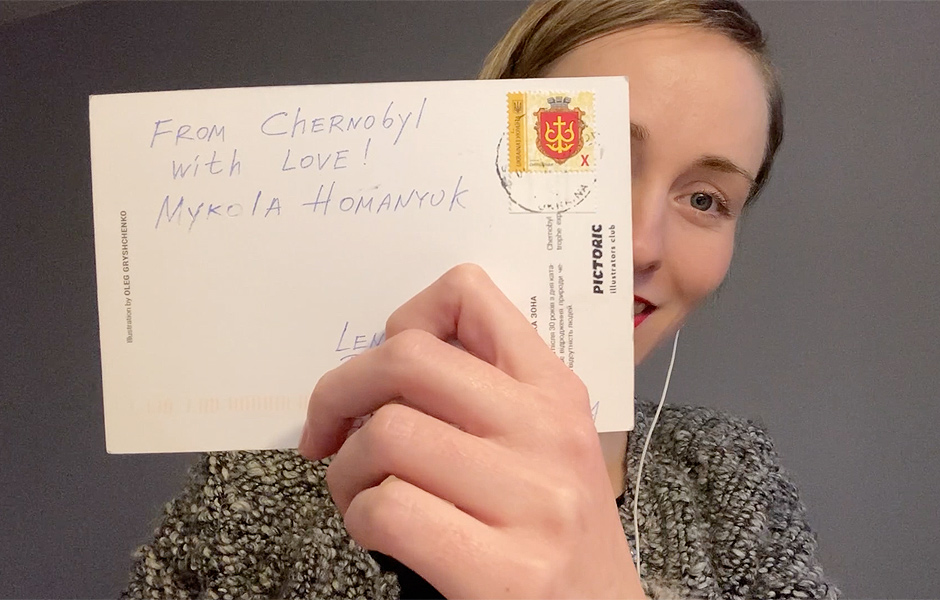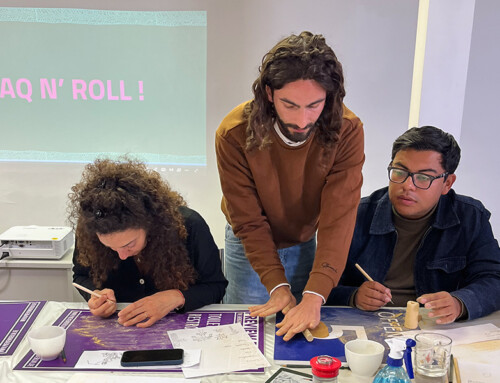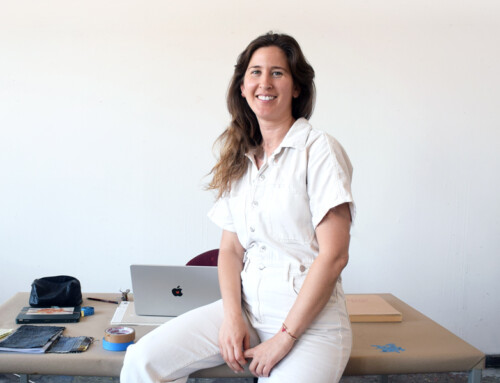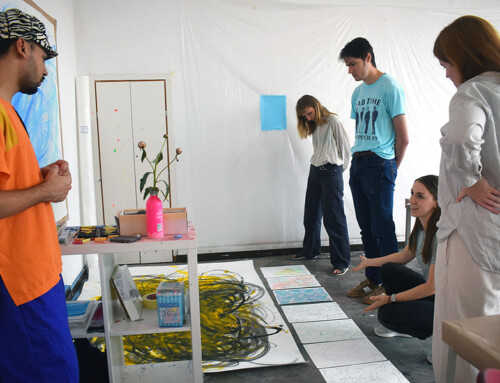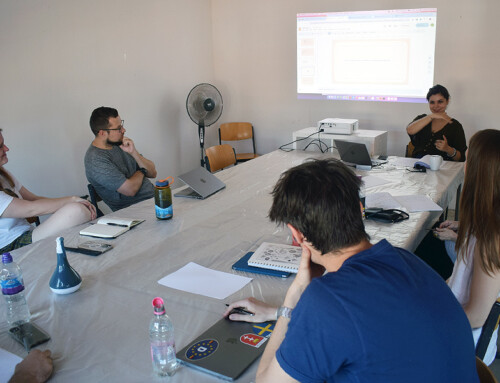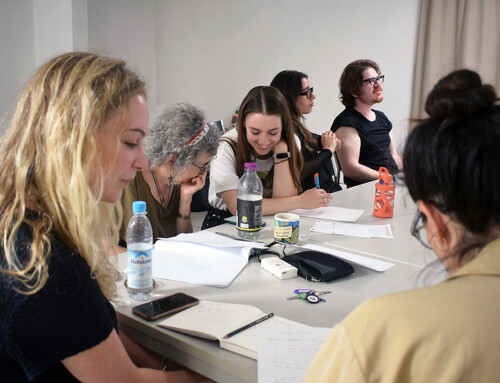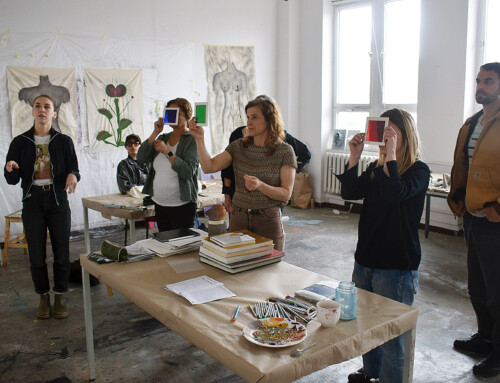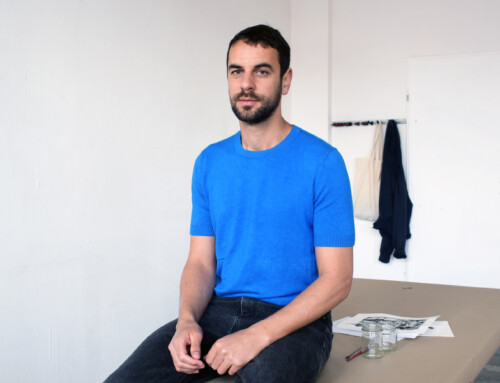June 28 – October 18, 2021
with 12 live online sessions on Jun 28, Jul 5, Jul 26, Aug 2, Aug 9, Aug 23, Sep 3, Sep 13, Sep 27, Oct 4, Oct 11, Oct 18, each day from 2 – 5 pm
Many thanks to the artist & writer Dagmara Genda for the online workshop series ART & SOCIETY – Artistic & Sociocultural Practices and discussing the contributions of our participants within the CrossCulture Program (CCP) by ifa (Institut für Auslandsbeziehungen) in the field of art/culture hosted by BAI | Berlin Artist Residency, Art School, Arts Incubator, and Live Online Courses & Classes.
Guest speakers: Anna Karpenko, Khaled Barakeh, Stine Marie Jacobsen & Adrian Melis
“The series of sessions is intended to engage the Fellows of ifa’s CrossCulture Programm in discussions and exercises about an artistic or art-centred engagement with society, politics and culture. The focus of the course is an examination of how art intersects with current societal concerns, including but not limited to decolonization, labour, social justice and climate change, and how art can be integrated into strategies of social and political engagement.
The goal of the workshops is not to reconceptualize art as an activist endeavour at the expense of all other approaches, but to critically examine how the arts as both a practice and industry can productively and critically function in a networked, and quickly changing world.
Summary of Content of the Fellows’ Presentations
The Fellows divided into groups according to their interests. Below is a summary of the project content of each group including the project title, the group members, as well as the tangible results that came out of the session. The task was to develop a project from the ground up and present a pitch at the end.
1. Red Lines
• Group Members: Diana Berg (Ukraine), Pavel Méndez (Cuba), Hamroh Aidarov (Tajikistan), Felix Bahnhofer (Germany)
• Topic: Post-Soviet landscapes
• Description: The group was interested in building a social network among cultural practitioners in post-Soviet, post-totalitarian, or currently Communist countries. This network is imagined as a multi-platform community that makes use of services such as Facebook, Telegram and a website, which the group designed and put online in the course of the workshops. They developed a “toolkit” for participants to share commonalities in their day-to-day lives in post-communist or transitioning communist countries. These tools are a series of urban interventions that both comment on and document their environments. These include photographs, activities defined by Guy Debord’s theory of érive, new cartographies, etc. Their plan is to apply for funding so as to realize aspects of the websites as exhibitions or planned interventions in the countries from which the group members come from.
2. Nuclear Legacies
• Group Members: Lena Reisner (Germany), Mykola Homanyuk (Ukraine), Diana Berg (Ukraine)
• Topic: Post-nuclear landscapes
• Description: This was a proposal for an exhibition and symposium on the topic of nuclear waste, specifically the damage produced by nuclear disasters. The group leader, Lena Reisner, expanded her program into Ukraine with the help of Mykola Homanyuk and Diana Berg. The plan is to arrange film screenings and events in nuclear cities, which include places with functioning nuclear power plants, arrange an online symposium guest-curated by experts in the fields, and conduct interviews with people living on and taking care of land damaged by nuclear waste. This group had applied for funding in the hope of realizing their project.
3. Sonic Transmissions
• Group Members: Lena Reisner (Germany), Yoldez Halleb (Tunisia), Mohamed Biyjeddiguene (Morocco), Ferass Al-Tubi (Oman)
• Topic: Transregional music in Morocco, Oman, Tunisia and Germany.
• Description: This group proposed an exhibition of joint musical heritage. The unifying component of the exhibition would be a common instrument, the flute, of which every culture has version. The goal of the group was to explore ways to archive and preserve this musical heritage as well as facilitate transmission to wider audiences. Each group member presented their own country’s particular woodwind instrument, how it has been used in the past, and how it continues, if it continues, to be played today. The group is still in its research phase and would like to potentially collaborate with another group, the Global Cultural Festival, in order to realize their goal.
4. Global Cultural Festival
• Group Members: Salman Syed (India), Reena Joy (India), Mohamed Khazim Miskin (Sri Lanka), Sara Mari Blom (Germany)
• Topic: combating racism through a traveling cultural festival
• Description: This traveling cultural festival would take place in a different countries every year. The goal was to initiate collaborations and cultural exchange between minority and dominant cultures in each area. The festival is conceived of an outdoor event including workshops, discussion panels, exhibitions and concerts. Each year a visual artist would be commissioned to create a large-scale work that would give the festival its visual signature. Private sponsors were identified and a mandate for the festival was written.
5. Konter Katar
• Group Members: Alexandra Vogt (Germany), Dawn Patricia Robinson (Germany), Mohammed Hamdoumi (Morocco)
• Theme: Raise awareness of the death toll of the World Cup in Qatar
• Description: Baffled by the wild support and popularity of soccer as opposed to the arts, the group set out to plan performative interventions during the upcoming world cup. The central theme of the project is the number of people that died building the sports venues for the world cup. According to the Guardian, they amount to over 6500 workers from five Asian countries. The group developed a series of interventions that would occur in multiple cities in Germany. These interventions would take the form of artist-manned soccer teams, who, instead of playing the game, would stand in opening formation wearing white jerseys (the colour of mourning in Qatar) and recite the names of all those who died. These performances would be preceded by a month-long discussion and film series on the topic of FIFA and the effects of the sports industry.” (Text by courtesy of Dagmar Genda)
Dagmara Genda (b.1981 in Koszalin, Poland) lives and works as an artist and freelance writer in Berlin. Her art practice is rooted in drawing, which she employs through the simultaneously connective and divisive form of the line. Mark-making is a means of defining and making sense of the world, with the benefit of malleability: the marks can be redrawn at any time. In this way, drawing becomes a mode of thinking as well as an adaptation strategy. Genda has shown in artist-run centres and various institutions across Canada such as the Esker Foundation, Walter Phillips Gallery, Kitchener-Waterloo Art Gallery, among others. Since 2017, she has been living in Germany where she has shown at the Arp Museum, Berlin Weekly, OQBO and is part of an upcoming group show at KAI 10 | Arthena Foundation in Düsseldorf.
More information on the ifa & Dagmara Genda Websites.
